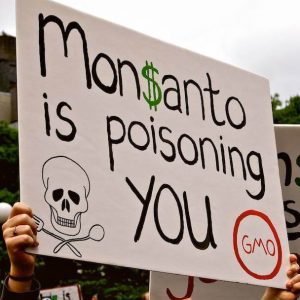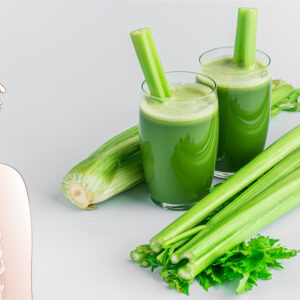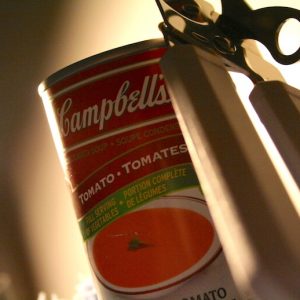In recent years it has been discovered that 85% of cotton-based feminine hygiene products contained glyphosate, the primary ingredient in Monsanto’s herbicide, Roundup. However, not many women were made aware, and billions of my fellow sisters still use these products during their menses.
The news of this didn’t really surprise me. After all, cotton was one of the first genetically modified (GM) crops, and is used in a variety of personal care products, from cotton clothing, to cotton swabs and of course, feminine hygiene products (tampons and pads).
Cotton is one of the heaviest consumers of the herbicide Roundup (along with some other heavy industrial agricultural chemicals), whose active ingredient is glyphosate. This is concerning, seeing as how glyphosate was determined to be “probably carcinogenic” by the World Health Organization in 2015.
Pesticides In Tampons
According to a study released in late 2015, an Argentinian research lab reportedly found glyphosate in eighty-five percent of the tampons, and other cotton sanitary products that were tested (1). Not only did the samples test positive for glyphosate, but 62% of the samples tested positive for AMPA, a metabolite of glyphosate. The brands tested included the American brands like Kotex and O.B.
Additional pesticides found in tampons (the only brand tested was O.B. include (2):
– Malaoxon & Malathion
– Dichlofluanid
– Mecarbam
– Procymidone
– Methidathion
– Fensulfothion
– Pyrethrum
– Piperonyl Butoxide
Although the levels of these pesticides were found to be relatively low, it still contradicts the FDA’s recommendation that tampons be “free of pesticide residue.” This, combined with the fact that the FDA categorizes tampons as a ‘medical device,’ means that manufacturers aren’t required to adhere to the same chemical regulations or labeling regulations as foods, drugs, or cosmetics (3)
According to the Environmental Working Group (EWG), glyphosate is proven to double the risk of one blood cancer, non-Hodgkin’s lymphoma, and increase the risk of a related cancer; multiple myeloma. A report put out by the world’s leading cancer experts at the International Agency for Research on Cancer mentioned multiple studies that found that farm workers’ glyphosate exposure increased their risk of multiple myeloma by 70 to 100 percent (4).
Vaginal Route of Exposure
The vaginal canal is the perfect place to absorb whatever it comes in contact with. It is richly layered with hundreds of tiny blood vessels, and produces mucus that protects against and washes away harmful microorganisms. It is self-cleaning by nature, and is also capable of secreting and absorbing fluids at a much higher rate than skin (this is also true of the vulva, clitoris, clitoral hood, labia minora and urethra) (5, 6).
Because the vagina and vulva absorb chemicals without having the chance to metabolize them, researchers have even explored how to deliver drugs vaginally (7). Although this might be useful for when drugs need to be rapidly delivered, it also means that women are exposed to higher levels of chemicals from feminine hygiene products than manufacturers intend.
Other Tampon Dangers
Tampons are loaded with a host of other nasty things, too. Aside from being made of conventional cotton (the most heavily sprayed crop in the world), they’re also made of polyester (a plastic derived from crude oil), and viscose rayon (mostly made from GMO-soy crops, at least in North America). Other ingredients in tampons include artificial fragrances, synthetic deodorants and absorbency enhancers (each carrying their own chemical risk).
One of the worst dangers posed by tampons (aside from pesticide residue) is the fact that they’re bleached with chlorine. The bleaching process creates chlorinated hydrocarbons, a hazardous group of chemicals with by-products, such as dioxins – some of the most toxic substances known.
According to the Environmental Protection Agency (EPA), no safe level for dioxin exposure exists. Dioxins do not break down. They accumulate in our tissue with repeated exposure, meaning that women are at major risk for accumulation of dioxin (seeing as how tampons are constantly being used month in, month out). In fact, one of the most powerful ways a woman detoxes these chemicals is through the umbilical cord into her fetus.
Aside from cancer and endometriosis, dioxin exposure also causes birth defects, the inability to maintain a pregnancy, reduced sperm count, decreased fertility, diabetes and a suppressed immune system.
What To Buy Instead
The only way to avoid pesticide-laden tampons and other feminine hygiene products is to simply stop buying them. I also realize that tampons aren’t the cheapest product out there, and to buy a product that costs more (like organic tampons) isn’t a reality for many people.
Regardless, there are options like silicone menstrual cups that can be reused each month, and also reduce the amount of waste we use. There is also the option of buying reusable organic cloth pads that allow the vagina to bleed freely, without the worry of blood getting everywhere. These pads can be washed and re-used, and only require a one-time investment.
Below are some companies I recommend looking into when purchasing alternative tampons to the standard brands like Kotex, O.B., Tampa, Always, Playtex, Equate or Stayfree (there are more out there, I am sure, but these are just a few of the common names I’m familiar with). I am not affiliated with any of the companies below, they are simply products created by companies I trust:
– Organic cotton tampons & pads: Natracare, Seventh Generation, Organyc
– Reusable menstrual pads: Luna rags (lots of other Etsy shops sell similar products), Lunapads, Gladrags
– Menstrual cups: Diva Cup, Lunette, Me Luna, Eva Cup









[…] Ben & Jerry’s Ice Creams (source) – Tampons (source) – Non-organic cotton clothing products (source) – Rainwater (source) – Groundwater supplies […]